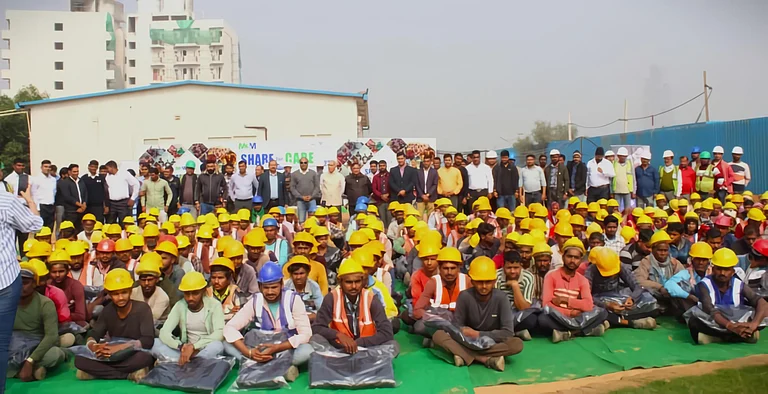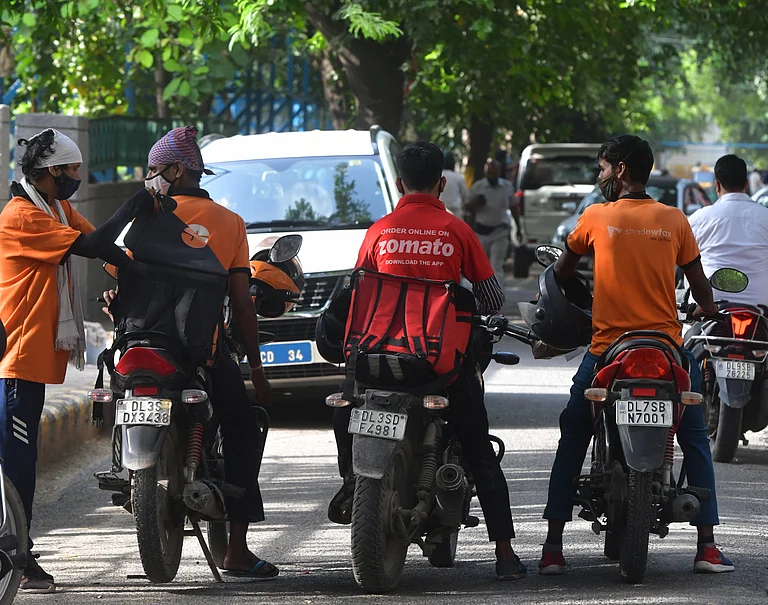
Samyukt Kisan Morcha criticised the new labour codes, saying they exclude most unorganised sector workers and weaken rights to unionise and strike.
The group urged public participation in the 26 November protest, arguing that worker voices and trade union recommendations were ignored in drafting the codes.
Samyukt Kisan Morcha (SKM) on Monday criticised the new labour codes, asserting that claims of guaranteed minimum wages and social security for workers are "unsubstantiated". The organisation noted that over 90 per cent of India’s workforce is in the unorganised sector and largely excluded from the codes’ coverage.
The group alleged that the new legislation weakens labour rights by restricting the ability to form trade unions and by imposing tougher conditions for calling a strike.
SKM also argued that the codes effectively extend the workday to 12 hours, replacing the standard 8-hour workday that is globally recognised. It said this change undermines Article 42 of the Constitution, which mandates humane working conditions.
In a statement, SKM said, "SKM strongly deplores the false corporate propaganda to eulogise the 4 Labour codes which are the most regressive labour reforms since Independence. SKM wholeheartedly supports the united trade unions movement’s determined protest to fight the Labour Codes to restore their rights as well as to attain other basic demands."
It added, "The tall claim of the Prime Minister that the labour codes ensure minimum wages and social security to all workers is unsubstantiated. More than 90% of the workers who are in the unorganised sector are out of the ambit of the Labour Codes. The Labour Codes have now put 90% of the remaining workers out of legal protection."
The organisation pointed to provisions in the Industrial Relations Code that exempt establishments with fewer than 300 workers from seeking government approval for lay-offs, closures and retrenchments — a marked change from the previous threshold of 100 workers.
It further noted, "Also, units with fewer than 20 or 40 workers (depending on power use) are exempt from specific provisions of the Occupational Safety, Health and Working Conditions (OSHWC) Code and are not required to register as a factory which were 10 and 20 earlier," citing Annual Survey of Industries data showing that nearly 80 per cent of factories employ fewer than 100 workers.
According to SKM, the new framework lacks mechanisms to enforce minimum wages or social security in the informal sector, and the government has refused demands for setting the minimum wage at ₹26,000.
The statement also charged that the laws restrict union activity, saying the mandatory 60-day strike notice and prohibition on protests during conciliation effectively "virtually ban strikes".
Reiterating its objection to extended working hours, SKM said, "It has legalised 12 hour’s work days from the present 8 hours work day which is universally accepted right of workers, negating Article 42 of the Constitution of India that ensures just and human conditions of work."
The group accused the ruling party and its ideological allies of siding with corporate interests over workers, stating, "The leadership of BJP, RSS and BMS owe an explanation whether they stand with the corporates or with the people of India. The Modi Government has succumbed to the corporate monopolies to betray working people and the young generation."
SKM further criticised the lack of consultation with trade unions, noting that the Indian Labour Conference has not been convened since 2015.
It said, "Indian Labour Conference (ILC), a crucial tripartite consultation forum, has not been convened since 2015. Highly authoritarian way of imposing corporate dominance over the working people is not acceptable."
The organisation has urged the public to participate in a nationwide protest planned on 26 November, called jointly by SKM, central trade unions, sectoral federations and agricultural worker unions.


























